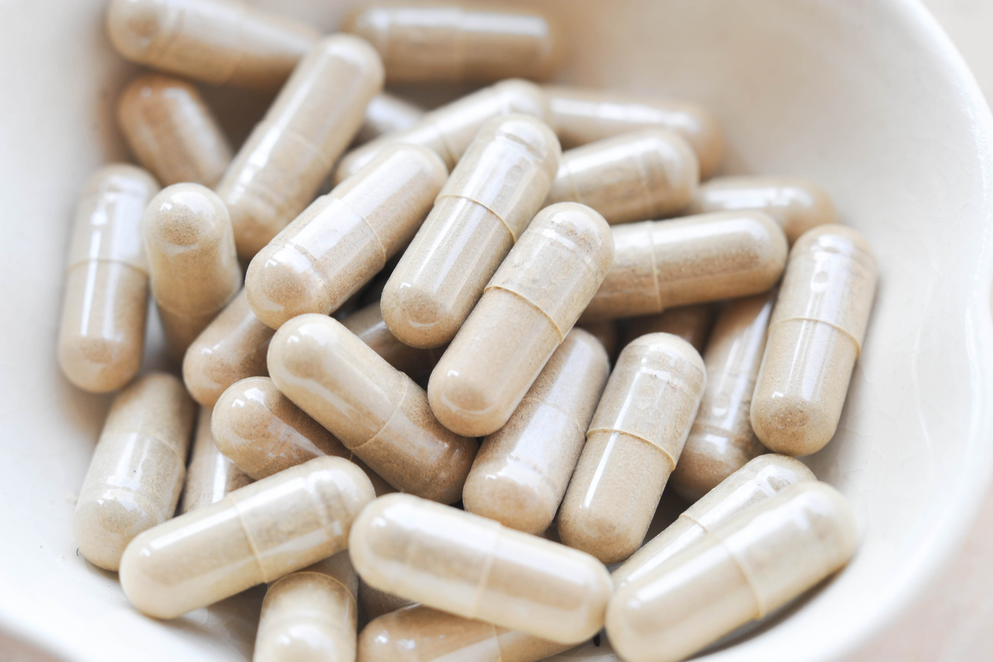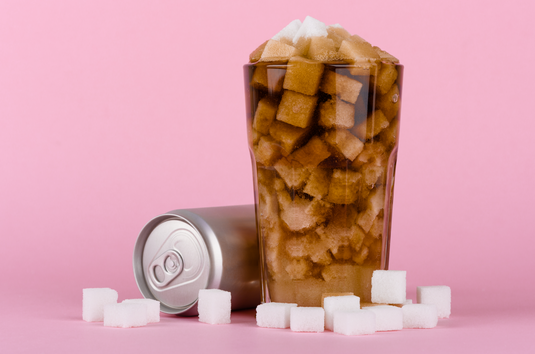Les probiotiques sont-ils vraiment « inutiles » ?

Si vous avez lu l’une de ces histoires et que vous vous demandez maintenant si les probiotiques sont inutiles, continuez à lire.
Chez Genuine Health, notre objectif ambitieux est de créer un monde où la santé naturelle ne soit plus perçue comme une alternative. Or, les gros titres sensationnalistes sur les compléments alimentaires nous montrent qu'il reste encore beaucoup à faire. Nous avons donc examiné l'étude en profondeur et découvert quelques problèmes.
1. Il s’agissait d’une petite étude avec un échantillon de seulement 25 personnes, mais des études plus vastes et plus significatives ont montré que les probiotiques étaient bénéfiques – à maintes reprises.
- De nombreuses recherches soutiennent l'utilisation des probiotiques pour atténuer les symptômes du syndrome du côlon irritable (SCI), réduire la diarrhée associée aux antibiotiques, diminuer l'incidence des infections des voies respiratoires supérieures et favoriser la santé vaginale. De plus, de nouvelles recherches confirment le rôle du microbiome intestinal dans le sommeil, l'obésité et l'axe intestin-cerveau.
- Une étude exhaustive sur les probiotiques a examiné les données probantes actuelles issues d'essais contrôlés randomisés et de lignes directrices de Santé Canada, de l'Organisation mondiale de la santé et de comités d'experts reconnus à l'échelle internationale et a conclu que « l'utilisation des probiotiques devrait être envisagée chez les patients de tous âges ». [1]
- Une étude a révélé que la prise d’un probiotique pourrait aider à économiser jusqu’à 84 000 traitements antibiotiques, 500 000 jours de maladie, 9 millions de dollars en coûts directs de soins de santé et 100 millions de dollars en perte de productivité [2] .
- Une autre étude a montré que les probiotiques oraux pouvaient influencer la composition du microbiome jusqu’à la cavité nasale [3] .
2. La capacité d’un probiotique à coloniser ne signifie pas qu’il est plus efficace.
Dans le cadre de l'étude, les participants ont reçu un supplément probiotique pendant un mois. Ils ont ensuite été mis sous sédatif et des échantillons ont été prélevés chirurgicalement dans leur estomac, leur intestin grêle et leur gros intestin. Les chercheurs ont constaté que les bactéries ne semblaient pas coloniser leur organisme.
Mais la colonisation bactérienne n'est pas synonyme d'efficacité : l'intestin humain abrite des souches bactériennes résidentes et transitoires, et même si ces dernières ne persistent pas longtemps, elles présentent néanmoins des avantages. Apprenez-en plus sur la différence entre les souches résidentes et transitoires .
3. Le résultat dépend du type de probiotique utilisé.
Dans une autre étude réalisée par le même groupe de l'Institut Weizmann, des volontaires ont reçu un probiotique après un traitement antibiotique. Bien que de nombreux probiotiques aient été cliniquement validés pour repeupler l'intestin avec des bactéries saines après un traitement antibiotique, cette étude a en quelque sorte conclu au contraire.
Il convient de souligner que le probiotique utilisé n'était pas formulé pour une utilisation post-antibiotique ; il s'agissait d'une formule générique contenant 25 milliards d'UFC. L'Association scientifique internationale des probiotiques et prébiotiques ajoute que l'auteur de l'étude, Eran Elinav, « généralise les résultats de l'étude à tous les probiotiques – une généralisation qui ignore que chaque probiotique est destiné à des fins spécifiques ». [4]
Alors, les probiotiques sont-ils inutiles ? Absolument pas !
L'étude citée par ces médias était de petite envergure et ne tenait pas compte des bénéfices potentiels des souches bactériennes résidentes et transitoires. De plus, une autre étude menée par le même groupe a généralisé l'idée que tous les probiotiques sont identiques, même si leur qualité et leur formulation peuvent varier.
Le Dr Gregor Reid est le scientifique qui a contribué à définir le terme « probiotiques ». C'est un ami proche, un collègue estimé et un conférencier invité à Town Hall Medicine. Le Dr Reid a écrit une réponse dans le Microbiome Times aux conclusions de l'étude et à la couverture médiatique sensationnaliste qui a suivi. Il a déclaré :
On ne peut qu'espérer que les consommateurs ne liront pas ces articles, qu'ils auront la volonté de rejeter ou d'enquêter sur ce qui est véhiculé, ou qu'ils réaliseront que certains titres sont en réalité des fake news . Alors que les chercheurs poursuivent leurs efforts pour comprendre le fonctionnement du microbiome humain (non seulement les microbes, mais aussi leurs métabolites et les réponses induites par l'hôte) et sa réaction aux médicaments, aux microbes bénéfiques, aux aliments et aux compléments alimentaires, il est essentiel d'être attentif à la conception, à l'analyse et à la présentation des études, ainsi qu'à la manière dont les revues et les évaluateurs prennent des mesures pour minimiser les conclusions généralisées ou infondées. [5]
Alors… qu’est-ce que cela signifie pour vous ?
Oui, vous devriez prendre un probiotique, mais assurez-vous de choisir le bon. Lorsque vous achetez un probiotique, il est important de choisir un produit…
- Conçu pour fournir des probiotiques plus copieux à votre intestin
- Fabriqué à partir de plusieurs souches, car votre intestin abrite de nombreuses espèces différentes de bactéries, et pas seulement une seule
- Fabriqué à partir de souches résidentes et transitoires, chacune offrant des avantages différents
- Sans allergènes, comme le blé, le gluten, les produits laitiers, le soja, les arachides et les noix, le sésame, le poisson, les œufs, le maïs, les sulfites, les crustacés/poissons, la moutarde
- Fabriqué avec une UFC garantie, vous savez donc quelle quantité de bactéries probiotiques vous obtenez
- D'origine humaine et garanti sans OGM
- Encapsulé dans une capsule résistante à l'acide et à la bile qui délivre les probiotiques intacts à l'intestin
- Il est stable à la conservation et peut être conservé hors du réfrigérateur.
Nous avons créé un probiotique avancé pour la santé intestinale avec un seul objectif : enrichir l'intestin en bactéries saines et bénéfiques. Pour y parvenir, nous avons travaillé à rebours.
Nous savons que l'intestin contient de nombreuses espèces bactériennes différentes. C'est pourquoi nous avons formulé un probiotique avancé pour la santé intestinale, composé de 15 souches probiotiques humaines dans une formule équilibrée, pour favoriser une écologie intestinale saine et diversifiée.
Les probiotiques sont cultivés avec soin dans un environnement à température et humidité contrôlées. Nous les nettoyons ensuite trois fois pour éliminer les toxines et les cellules affaiblies, afin d'obtenir un mélange probiotique pur, stable et sans allergènes.
Nous emballons des probiotiques avancés pour la santé intestinale avec un excédent généreux de bactéries afin que même au moment de leur expiration, ils contiennent toujours l'UFC garantie imprimée sur l'étiquette.
Les capsules probiotiques doivent survivre à l'environnement acide de l'estomac pour que les bactéries probiotiques puissent atteindre l'intestin. C'est pourquoi nous utilisons une capsule végétalienne, à libération prolongée et résistante à l'acidité, sans plastique. Cette capsule permet aux probiotiques d'atteindre l'intestin sans les altérer.
Une étude clinique humaine a révélé que nos capsules atteignent l’intestin grêle 45 minutes après les capsules standard, et nos capsules fournissent jusqu’à 10 fois plus de bactéries à l’intestin.
Enfin, la lumière et l’humidité peuvent accélérer la dégradation des probiotiques. C’est pourquoi nous avons soigneusement choisi de conditionner les probiotiques avancés pour la santé intestinale dans un emballage sous blister stable à température ambiante.
Notre objectif est que la médecine alternative ne soit plus considérée comme l’alternative.
Les gros titres sensationnalistes nous rappellent que nous avons encore un long chemin à parcourir.
Mais en attendant, si vous lisez un titre négatif sur un complément, prenez-le avec des pincettes. N'oubliez pas :
- Les probiotiques ont démontré leur efficacité à maintes reprises.
- Mais tous les probiotiques ne sont pas identiques, et il est important d’en trouver un de haute qualité, créé pour fournir des bactéries plus saines et plus saines là où elles sont nécessaires : votre intestin !
Sources
[1] Taibi, et al. Approches pratiques de l'utilisation des probiotiques. Appl. Physiol. Nutr. Metab. Août 2014 ; 39(8) : 980-6
[2] Wijnkoop, I et al. L’impact clinique et économique de la consommation de probiotiques sur les infections des voies respiratoires : projections pour le Canada. PLoS One. 2016; 11(11) : e0166232.
[3] Cross, ML Signalisation immunitaire par des bactéries probiotiques administrées par voie orale : effets sur les réponses immunitaires muqueuses courantes et la protection aux sites distaux de la muqueuse.
[4] https://isappscience.org/clinical-evidence-not-microbiota-outcomes-drive-value-probiotics/
[5] http://www.microbiometimes.com/trying-to-close-the-stable-door-after-the-horse-has-bolted/

















































